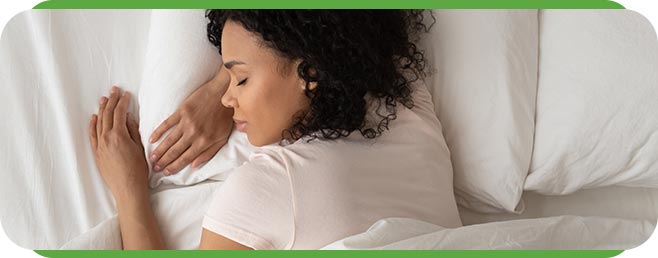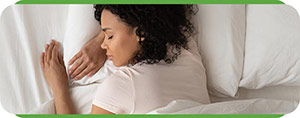Sleep Hygiene: Tips for a Better Bedtime Routine
The principles of sleep hygiene are based on prioritizing and facilitating a good night’s sleep for a positive sleep and wakefulness cycle. Positive or negative sleep hygiene practices influence an individual’s ability to get a good night’s sleep in a myriad of ways. Sleep services are available at Koala® Center For Sleep & TMJ Disorders. For more information, please contact us or book an appointment online now! We have convenient locations across the USA in Bloomington IL, Peoria/Dunlap IL, El Paso TX, and Wausau WI.


Table of Contents:
What is sleep hygiene, and why is it important for overall health?
What are some tips for creating a conducive sleep environment?
What are the principles of sleep hygiene?
How does managing stress and anxiety contribute to good sleep hygiene?
Sleep hygiene is a broad category concerning sleep behavior and sleep environment. Positive or negative sleep hygiene practices influence an individual’s ability to get a good night’s sleep in a myriad of ways.
Poor sleep hygiene and, consequently, poor sleep can lead to acute concerns, such as feelings of sluggishness, fatigue, irritability, a reduction of energy, memory problems, lack of alertness, and much more. When this continues, it can lead to various concerns such as a weakened immune system, weight gain, increased stress levels, increased risk of cardiovascular disease, and an increased risk of several other health issues.
Forming good sleep habits is a central component of getting a good night’s sleep. This involves a sustainable and healthy routine, eating behavior, and environment to get a good night’s sleep leading to positive outcomes.
Creating a conducive sleep environment is an integral component of sleep hygiene and consequently a good night’s sleep and positive health outcomes.
Various steps individuals can take according to their specific needs include decluttering the room as an excellent starting point. This includes removing distractions in the bedroom to help the body relax.
This can particularly include taking TVs and other electronics out of the bedroom, these devices also lead to exposure to blue light, which reduces the production of melatonin, adversely affecting sleep. Creating a distraction free environment moves beyond technology as well and includes removing work documents and more from the bedroom. That can distract individuals while they are trying to sleep. Making sure the room is quiet is an important practice as well.
Sleeping in a cool environment can help cool the body down faster, which can result in individuals falling asleep more quickly. The room should additionally be dark, so lights are off and thick curtains are essential.
High-quality sleeping materials, including a comfortable pillow and mattress, can last individuals for a long time and can be a long-term investment in an individual’s overall health and wellness.
The principles of sleep hygiene are based on prioritizing and facilitating a good night’s sleep for a positive sleep and wakefulness cycle. Establishing a regular and habitual sleep cycle is an essential component of getting a good night’s sleep. By falling asleep at approximately the same time each day, the body will establish a routine that will promote ongoing wellness and make it easier to adhere to when individuals follow a similar routine for sleep and wakefulness timing.
Routines involving relaxing activities such as a warm bath or reading and minimizing screen time can all help individuals have an easier time getting to sleep. Avoiding caffeine later in the day and limiting caffeine when an individual has it can help promote quality sleep.
Alcohol consumed in the hours before bedtime can also have adverse impacts. Individuals should be active during the day so they feel ready to fall asleep. Keeping your sleep environment dark, cool, and quiet and practicing excellent sleep hygiene will help improve health outcomes.
Stress and anxiety have a complex and cyclical relationship with sleep hygiene. Improper sleep hygiene can lead to a bad night’s sleep, which can lead to an increased likelihood of the onset of stress and anxiety.
Similarly, stress and anxiety make it more difficult for an individual to fall asleep at night, exacerbating the issue as a result. Stress and anxiety can elevate the heart rate, quicken breathing, and increase the production of stress hormones in the body, and this can last even after the presence of a stressor is gone.
By using relaxation techniques, such as deep breathing and meditation, individuals can alleviate the symptoms associated with stress or anxiety and make them less disruptive to their bedtime routine.
In addition to specific stress management techniques that can be incorporated into a nighttime routine, practicing excellent sleep hygiene can help facilitate the reduction of the stress hormone as an individual enters their relaxing sleep environment.
Sleep services are available at the Koala® Center For Sleep & TMJ Disorders. Visit us online now to learn more about our services and for directions to our locations! We also encourage everyone to visit us online to meet our team and to sign up for our special offers!

Additional Services You May Need
▸ KoalaKIDZzz®
▸ Sleep Apnea
▸ Snoring
▸ TMJ Disorder
▸ Fatigue
▸ Sleep Disorders
▸ Weight Loss
▸ CPAP Alternative
▸ Oral Appliances




